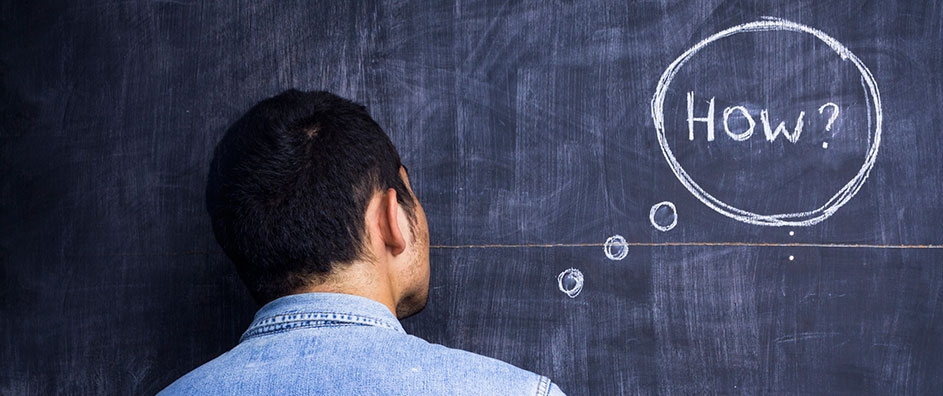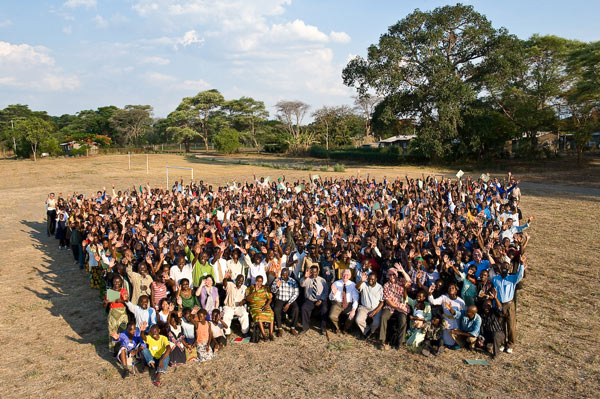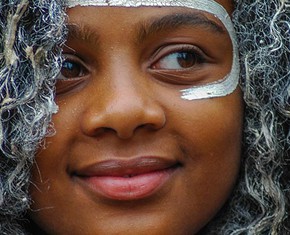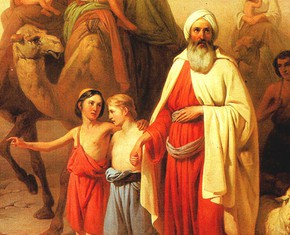The views expressed in our content reflect individual perspectives and do not represent the authoritative views of the Baha'i Faith.
This series of articles has been about reconciling old and new faiths—in my case Christianity and the Baha’i Faith. Whether you have an old faith or no previous faith, joining a new religion involves aligning your heart and mind with new beliefs and patterns of life. Indeed, many times, the realization that you have beliefs that differ from the beliefs of past religions was what prompted you to seek out a new religion in the first place. When you responded to that inner call, you discovered a new way of looking at yourself and the world.
If you decide to become a Baha’i, you’ll take a step into a rich, wonderful new experience. Very few people on the planet ever get to understand the joyous reality of world citizenship, but the Baha’is practice it and live it every day. When you enter the Baha’i community, you’ll begin to see what that really means.
Becoming a Baha’i means, in Baha’u’llah’s words, to “Consort with all men in a spirit of friendliness and fellowship,” and to practice amity, concord, unity and loving-kindness toward everyone. The global Baha’i community includes every racial group, every nationality, every tribe, every ethnic group, every economic class and every former faith – in short, it truly represents the entirety of humanity. Unique in that respect, the Baha’i community brings together people across boundaries they have never crossed before, uniting those whose previous divisions and disagreements have kept them apart for millennia. People from Muslim, Hindu, Christian, Jewish, and atheistic backgrounds populated my first Baha’i community, which was also about half African-American.
Baha’i communities span a broad spectrum of size and diversity, depending on where they are and how the local population has responded to Baha’u’llah’s message of peace and unity. Some urban areas have many thousands of Baha’is, while some rural and agricultural areas have only a few. In places where the Baha’i teachings first became known in the 19th or early in the 20th century, Baha’i communities often have a long history of activity and social engagement, which makes them well-known and typically well-liked. In a few parts of the world, however, Baha’is have suffered persecution, violence, imprisonment and even execution for their beliefs.
Today in Iran, for example, the Baha’i Faith – even though it is the largest non-Muslim minority religion in the country – continues to be viewed by many as heretical, and still suffers the brunt of religious hatred and bigotry. Islamic fundamentalists in Iran and a small number of other Middle Eastern countries have long seen the progressive Baha’i teachings as a threat to Islam, which has led to widespread branding of the Baha’is as apostates, heretics, spies and worse. The Baha’i positions on compulsory education for all children (including girls); the equality of men and women; the independent investigation of truth; the equality of science and religion and many other liberal social principles have caused the Iranian government and some of its leading Muslim clerical authorities to openly ban the Baha’i Faith. Baha’is there have been blocked from educating their children; have had their properties and businesses confiscated and destroyed; have witnessed the demolition of their cemeteries; and have undergone imprisonment and torture just for the “crime” of being Baha’is.
In the vast majority of the world’s countries and territories, however, Baha’is thankfully have the freedom to believe as they see fit and to actively incorporate the Baha’i teachings into their lives.
Anyone can become a Baha’i by simply recognizing Baha’u’llah as the Messenger of God for this age, and letting their local Baha’i Assembly know about their belief. Baha’is follow Baha’u’llah’s teachings and laws, take part in the Baha’i community and the Baha’i administration, and commit their lives to doing what they can to serve humanity and unify the world.
That process, Abdu’l-Baha said, is essentially a spiritual one:
I supplicate that you may become as new beings, illumined with the Divine Light, like unto shining lamps… May this boundless love so fill your hearts and minds that sadness may find no room to enter and may you with joyful hearts soar like birds into the Divine Radiance.
May your hearts become clear and pure like unto polished mirrors in which may be reflected the full glory of the Sun of Truth.
May your eyes be opened to see the signs of the Kingdom of God, and may your ears be unstopped so that you may hear with a perfect understanding the Heavenly Proclamation sounding in your midst.
May your souls receive help and comfort, and, being so strengthened, may they be enabled to live in accordance with the teachings of Baha’u’llah.
I pray for each and all that you may be as flames of love in the world, and that the brightness of your light and the warmth of your affection may reach the heart of every sad and sorrowing child of God.
May you be as shining stars, bright and luminous forever in the Kingdom.
I counsel you that you study earnestly the teachings of Baha’u’llah, so that, God helping you, you may in deed and truth become Baha’is. – Abdu’l-Baha, Paris Talks, pp. 95-96.

















Comments
Sign in or create an account
Continue with Googleor